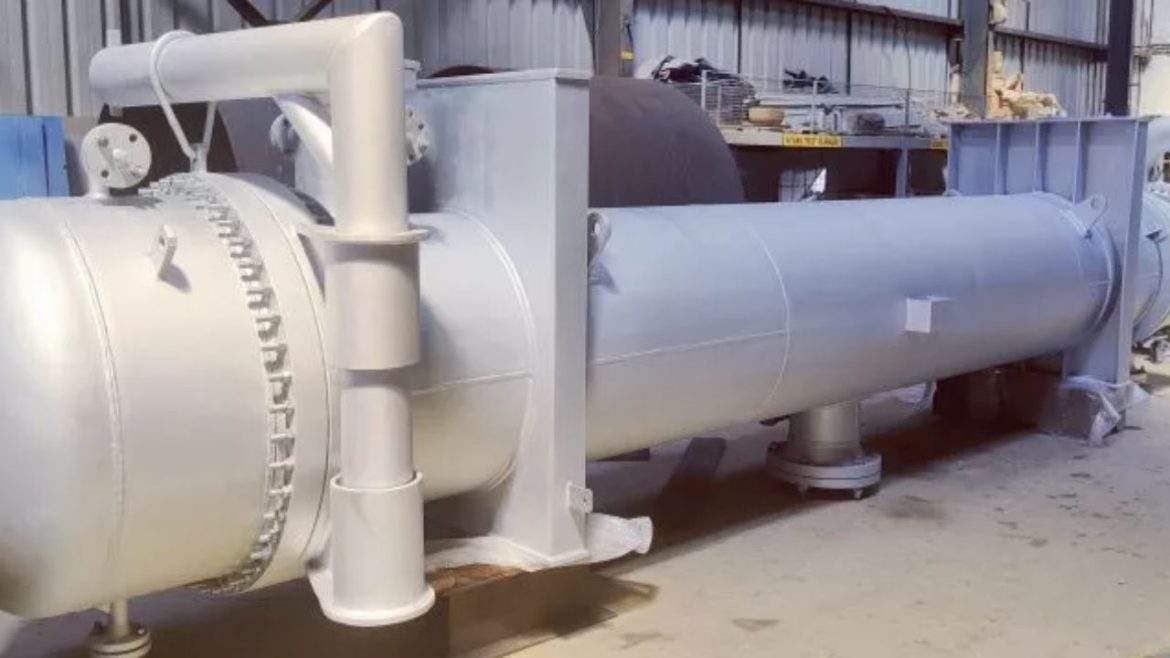A floating head heat exchanger is vital in industries requiring efficient thermal management and fluid heat transfer. Its unique design accommodates materials’ thermal expansion and contraction, making it ideal for processes involving high-temperature or high-pressure conditions.
These heat exchangers are versatile and offer robust solutions across diverse applications. This article discusses the various applications of floating head heat exchangers in numerous industries, emphasizing enhancing operational performance.
Different Uses of Floating Head Heat Exchangers in Various Industries
Applications in the Oil and Gas Industry
- Crude Oil Refining
In crude oil refining, floating head heat exchangers heat crude oil before it is introduced to the distillation towers. They efficiently transfer heat from the hot process streams to the incoming feedstock, reducing energy usage while increasing general plant efficiency.
- Gas Processing
These heat exchangers are necessary for moistureless gas and heat recuperation in natural gas processing. Due to their robust build, they can bear pressure and torrid temperatures and operate optimally in GTL (gas-to-liquid) conversion and liquefaction.
- Heat Recovery
Floating head heat exchangers encourage energy recuperation by moving heat from a high-temperature process stream to a low-temperature one. This enhances energy efficiency and promotes sustainability standards.
Role in Chemical and Petrochemical Industries
- Reactor Cooling and Heating
In chemical and petrochemical plants, floating head heat exchangers control reactor temperatures. They either cool or warm up reaction mixtures to maintain suitable conditions for exo or endothermal reactions.
- Solvent Recovery
Floating head heat exchangers have important and useful applications in solvent recovery systems. They are used for condensing and demultiplexing solvents from other process flows. These pumps can effortlessly deal with caustic fluids, and for this reason, they are utilized.
- Polymer Manufacturing
These heat exchangers provide temperature stability in polymer production to help meet the standard specifications of the final product. Their design allows for easy maintenance, even in environments prone to fouling.
Importance in Power Generation
- Steam Cycle Efficiency
Floating head heat exchangers are also very popular in power plants, especially in steam cycles. They assist in heat exchange between the steam leaving the turbine and the cooling water, thus increasing the cycle efficiency.
- Condensers and Feedwater Heaters
In thermal power plants, these exchangers act as condensers and feedwater heaters, optimizing energy recovery. Their design minimizes thermal stresses, increasing reliability in continuous operations.
Use in the Food and Beverage Industry
- Pasteurization
Floating head heat exchangers are necessary for pasteurization, one of the most typical thermal treatment technologies for liquids such as juices, milk, and sauces. Their easy maintenance and cleaning capabilities make them ideal for food-grade applications.
- Heat Recovery in Brewing
In breweries, these heat exchangers recover heat from wort boiling processes. The recovered energy is reused in other stages, reducing operational costs.
- Refrigeration Systems
Elaborate food industry refrigeration systems use floating head heat exchangers that make sealing the space between the refrigerant and cooling water possible, thus offering consistent performance.
Applications in the Pharmaceutical Industry
- Temperature-Sensitive Processes
In process manufacturing, various activities, such as synthesis for drugs and fermentation, are sensitive to temperature. Floating head heat exchangers ensure stability and efficiency in such applications.
- Sterilization
Another critical use is sterilizing equipment and fluids. These exchangers handle the high temperatures and pressures required for effective sterilization without compromising reliability.
Utility in HVAC Systems
- Industrial Cooling
Floating head heat exchangers are employed in industrial HVAC systems to maintain optimal temperatures in large facilities. They effectively handle the heat exchange between cooling water and air-conditioning systems.
- Heat Recovery
They also assist in heat recovery in HVAC configurations, moving heat generated from exhausted air to fresh air, which is drawn into the system.
Benefits in the Pulp and Paper Industry
- Black Liquor Recovery
Black liquor recovery boilers use floating head heat exchangers in the pulp and paper industry. They transfer heat to help evade water from black liquor, a byproduct of the pulping process.
- Process Water Heating
These heat exchangers also heat process water, ensuring smooth operations in paper manufacturing and reducing energy consumption.
Environmental Applications
- Waste Heat Recovery
Floating head heat exchangers contribute to environmental sustainability by enabling waste heat recovery in industrial setups. This reduces energy consumption and minimizes greenhouse gas emissions.
- Water Treatment
In water treatment plants, these exchangers manage the thermal exchange in processes like desalination and wastewater treatment, improving operational efficiency and sustainability.
Conclusion
Floating head heat exchangers excel in thermal performance and durability, which are important for working in various industries. Thanks to their workhorse construction, they are built to perform under rigorous working environments and have superior protection against corrosion, making them indispensable in various important industries and in dozens of other areas.
As enhanced thermal transfer systems, they play the most elementary role in increasing productivity and contributing to environmental change agendas. Industries can rely on their robust design to meet evolving challenges, ensuring long-term productivity and cost savings.
